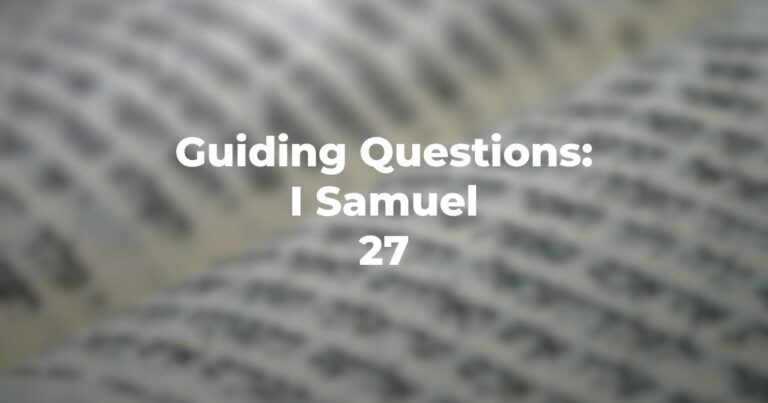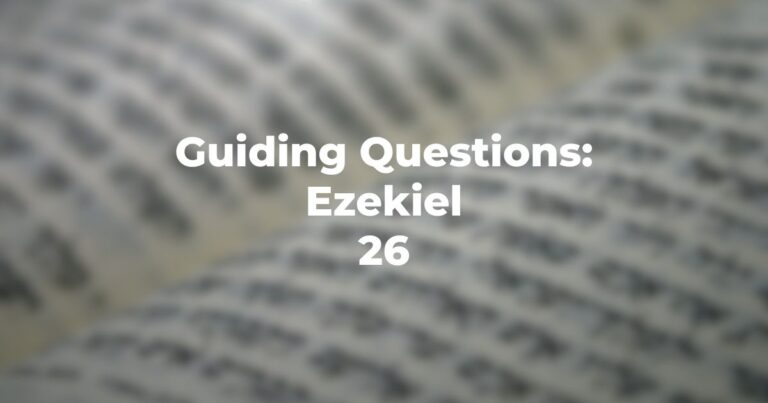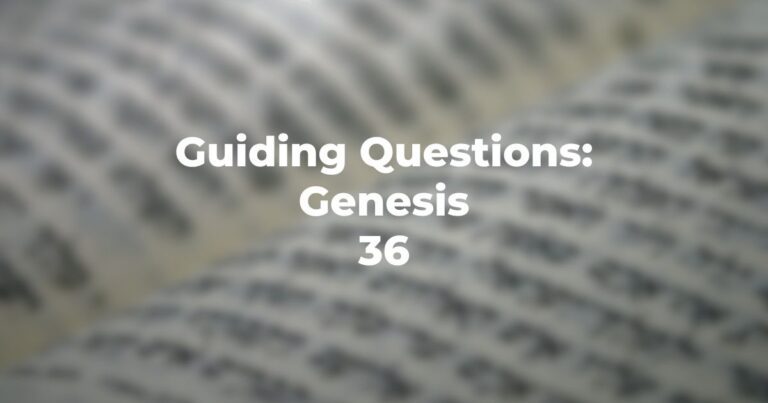- How does this chapter accentuate the concept that “the past is important?”
- Does one “relive the past” or is one taught to do that which will recall it?
- Why is this month called “the first of the months for you?”
- Why is a male animal to be selected?
- What does the blood on the door post, threshold, lintel symbolize?
- Is there an explanation for eating “matzot u’merorim?”
- How does Exodus 12:12 compare to Exodus 12:7?
- How does Exodus 12:14 emphasize that memory alone is insufficient?
- Does the TorahRefers to the first five books of the Hebrew Bible, the Tanakh, also called the Five Books of Moses, Pentateuch or the Hebrew equivalent, Humash. This is also called the Written Torah. The term may also refer to teachings that expound on Jewish tradition. Read more have a religious pun in mind in Exodus 12:17? (matzot and ______)
- What is the relationship between Passover and the seven days of eating matzot?
- Is the description of celebrating/commemorating the event the way in which it is always to be done?
- Is there any other way of recalling these events?
- How does text stress the importance of explaining “religious matters and tradition” to children?
- And what specific definition is to be given to them for the word Pesah?
- Why is the explanation so brief; is a pedagogic principle implied?
- Did the Ivrim “leave” or were they “chased out?”
- Does Pharaoh negotiate any terms at this point?
- Why is there no answer to Pharaoh by Moses?
- Were the Israelites in any way prepared to leave?
- What does this teach as to the “origin” of matzah — bread of affliction, or a bread of haste?
- Is there any description of how the Ivrim felt — comparable to the description of the Egyptians’ feelings that night?
- Did only B’nai Yisrael leave?
- Are the Ivrim “Tzivot Adonai” — and, if so, why this title (Exodus 12:41)?
- Exodus 12:42 speaks of “their being taken out” — what explains the correctness of this phrase?
- Why, in Exodus 12:37-42 is the word Ivrim not used?
- Can tyranny be overcome and, in this narrative, if it was, with what help?
- Will tyrants respond to moral suasion or only to “action?”
- The departure is not “quite relaxed”; is escape from slavery, even if inconvenient and most difficult, ever to be rejected?
- In this narration, is there any attempt to conceal the origin of the “slave people, a most undignified” history and its emergence as a free group?
Author
-

Exploring Judaism is the digital home for Conservative/Masorti Judaism, embracing the beauty and complexity of Judaism, and our personal search for meaning, learning, and connecting. Our goal is to create content based on three core framing: Meaning-Making (Why?), Practical Living (How?), and Explainers (What?).
View all posts





